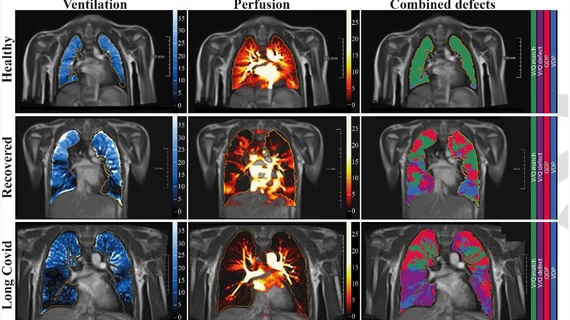There is growing evidence of long-term lung damage in adults who have recovered from COVID, but new research suggests that it isn’t just adults who are at risk the complication—kids and teens are too.
A new analysis published in Radiology details signs of persistent pulmonary dysfunction in children who have recovered from a COVID infection or who are experiencing symptoms of long-COVID. Using low-field MRI, experts found reduced ventilated and perfused lung parenchyma (V/Q match) in the COVID group of patients compared to a group of healthy controls.
“We conceived this study when the evidence for long- or post-COVID cases in adults was growing,” the study’s senior author Ferdinand Knieling, MD, a specialist in pediatrics and adolescent medicine from the departments of Pediatrics and Adolescent Medicine at University Hospital Erlangen in Erlangen, Germany. “This was also when the first patients with unspecific symptoms were seen in our department, and parents started to ask about an association with a prior infection.”
Knieling and colleagues opted for low-field MRI exams because they allow for free breathing during the scan, making them a more practical option for children and adolescents. The analysis included 54 post-COVID participants—29 recovered and 25 with long COVID—along with 9 healthy controls, each of whom underwent a low-field MRI scan.
Shortness of breath, issues with focus, headache, fatigue and loss of smell were commonly reported in the COVID group. The V/Q match for that same group was 62% (recovered group) and 60% (long COVID group). In comparison, the V/Q match of the healthy controls was reported to be 81%.
“Persistent symptoms after COVID still cause diagnostic odysseys, and this is especially true for young people,” Knieling explained. “Our findings illustrate that caring for these patients is a multidisciplinary challenge.”
In terms of the future, it is not yet known how these findings, coupled with the patients’ symptoms, will either resolve or continue to impact the quality of life in those who are affected, but a follow-up study has already started, the authors shared.
Learn more here.

